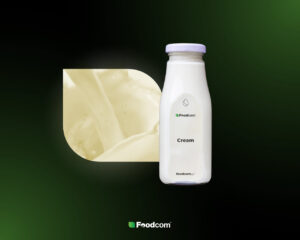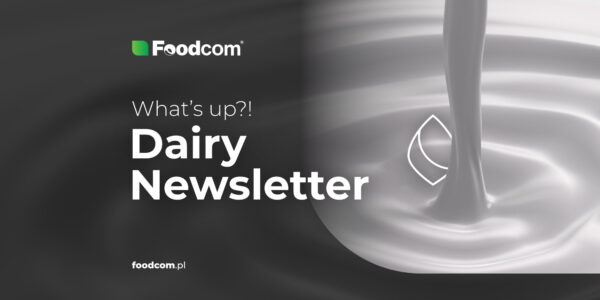- The European skimmed milk powder market is struggling with low prices and weak export demand despite attracting global buyers.
- Cheese prices are increasing as supply of raw materials like milk is decreasing and affecting production costs.
- Senator Cory Brooker has introduced a bill to ban the use of poultry litter in cattle feed to prevent diseases and protect public health and animal welfare.
Hello Partners!
Welcome back to our Newsletter!
In this issue we look at the latest in the dairy industry. From fluctuating skimmed milk powder and cheese prices to innovations in sustainable dairy we bring you everything you need to know. Stay with us as we look at market movements, US legislative changes and dairy farming’s environmental impact.
Let’s take a look at what else is happening in the dairy market!
Skimmed Milk Powder
The skimmed milk powder market continues to experience price declines as a result of weak interest from exporters. Despite low prices in Europe, which are the lowest in the world and are attracting buyers, overall low global demand is keeping the market under pressure. Although low prices are encouraging some buyers to take up purchases, the lack of significant changes in the sector makes it difficult to predict how long this situation will continue.
Cheeses
Last week, we noted price increases for cheeses such as Mozzarella and Cagliata. The upward trend is expected to continue in the coming month as well. The main reason for the increases is the reduced supply of raw materials, such as milk, which has directly affected production costs. Although demand remains stable, restrictions on the availability of key ingredients are driving prices up.
Prices for other popular cheeses, such as Gouda, Edam, Cheddar and Emmental, remain stable.
Fats
Butter prices in Europe are rising due to the higher cost of cream. Producers, with low stocks, are taking advantage of the situation to raise prices, even though buyers are not happy about it. In addition, the hot summer is reducing availability, and forecasts indicate that butter prices will remain stable with the possibility of small increases in the coming months.
Prices for anhydrous milk fat (AMF) and butter oil also went up.
Liquids
The cream market in Europe is characterized by significant price increases. Higher production costs for cream have a direct impact on raising prices for dairy products such as butter. High summer temperatures further complicate the situation, limiting the availability of raw material and forcing producers to raise prices.
Skimmed milk concentrate (SMC) prices in Europe are around 2150 EUR/MT, making skimmed milk powder (SMP) production unprofitable, forcing producers to sell SMC in liquid form. Despite low SMP production, inventories among traders and producers remain high, and weak export demand is keeping prices low, which is attracting global buyers, but not enough to significantly increase prices. Producers are hoping for an improvement in global demand, which could stabilize the market and raise prices in the future.
The raw milk market in Europe is characterized by significant challenges, mainly due to high temperatures, which reduce the milk yield of cows. This limits the availability of raw milk, leading to higher prices. High production and transportation costs further strain the market. Despite rising prices, demand for raw milk remains stable.
Whey powders
The sweet whey powder market in Europe is showing stable prices, despite high supply. Prices for SWP for food use have risen to around 925 EUR/MT, while prices for SWP for animal feed are around 650 EUR/MT. The high availability of whey powder on the European market is due to excellent cheese production, which in turn increases the supply of whey.
WPC 80 instant prices in Europe remain high, above €9700/MT. Although production is up this year vs last year, demand is still outstripping supply. The upcoming buying season for the final quarters of the year may contribute to further increases in WPC prices, indicating continued market strength in the near future.
What else?
Senator Cory Brooker from New Jersey has introduced legislation aimed at banning the addition of animal excrement to livestock feed in the USA. The proposed law, named the “No Stools in Herds’ Troughs Act,” seeks to eliminate the practice of feeding cattle poultry litter, a practice banned in the UK and Canada but allowed in the US. This measure aims to prevent diseases such as avian influenza H5N1 from spreading between animals and potentially to humans. Experts highlight that this practice poses significant risks to public health and animal welfare.
_________________________________________________________________
A Tasmanian dairy, Ashgrove, claims to have launched the world’s first branded milk called “Eco-Milk,” produced using a seaweed-based feed additive that reduces methane emissions by 25%. This innovative approach addresses the significant environmental impact of livestock, which accounts for about 30% of global methane emissions. Eco-Milk, which is sold in Woolworths across Tasmania, costs slightly more than regular milk, reflecting its lower environmental footprint. The initiative is part of a broader movement where various companies explore feed additives to reduce greenhouse gases from cattle, though widespread adoption remains limited by cost.

![Dairy insights: stay ahead of market shifts! [229th Edition of Foodcom DAIRY Newsletter] Dairy insights: stay ahead of market shifts! [229th Edition of Foodcom DAIRY Newsletter]](https://foodcom.pl/wp-content/uploads/2024/06/Foodcom_SA_Dairy_Newsletter_3-1520x760.jpg)



![The world tests borders, Europe seeks stability. [284th Edition of the DAIRY Bulletin] The world tests borders, Europe seeks stability. [284th Edition of the DAIRY Bulletin]](https://foodcom.pl/wp-content/uploads/2023/08/Foodcom_Newsletter_Dairy-600x300.jpg)


